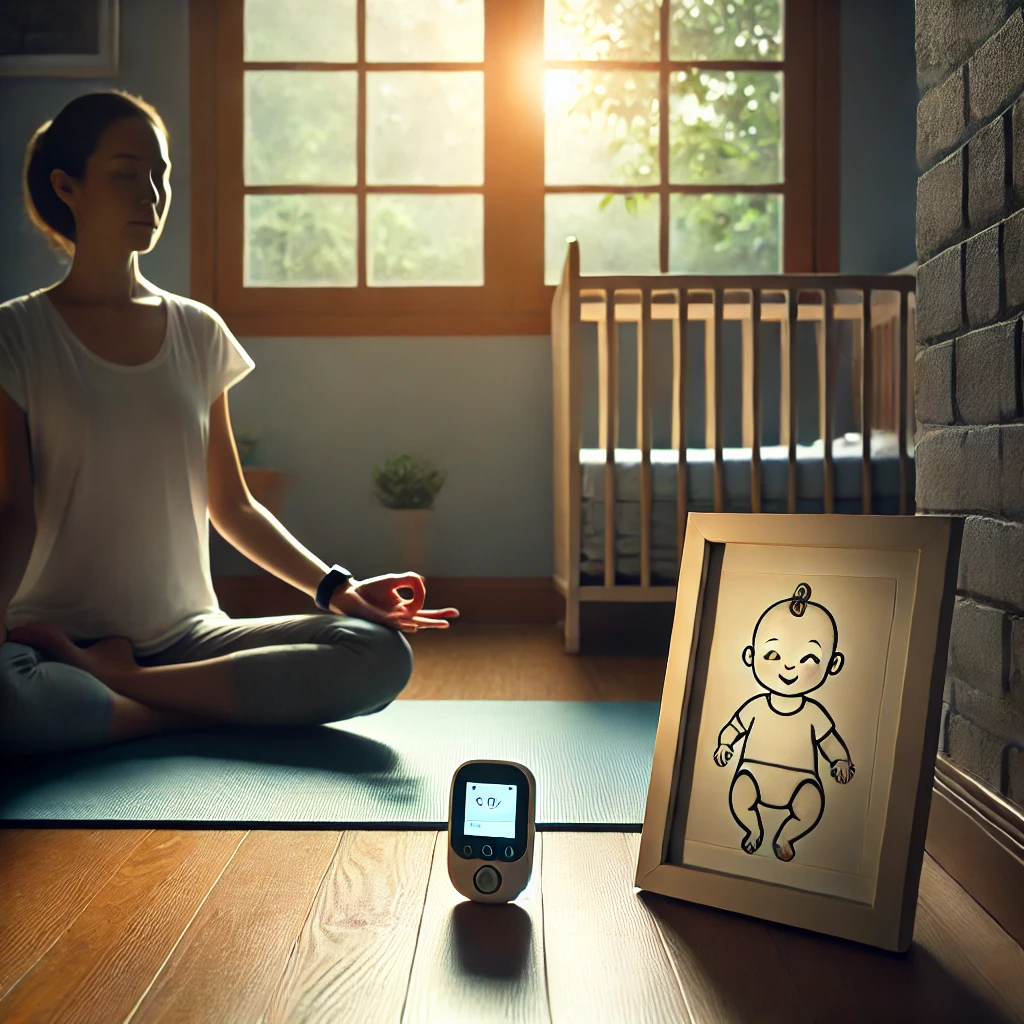Becoming a mother is one of the most significant and transformative experiences in a woman’s life. Whether you are about to welcome your first child, have recently become a mother, or are raising children of any age, the journey of motherhood is both rewarding and challenging. One of the most important aspects of being a good mother is creating a safe and nurturing environment where your child feels loved, valued, and able to express their emotions freely. However, it’s equally important to remember that taking care of yourself is not a luxury but a necessity—because a happy mother is key to raising a happy child.
1. Why Chasing Perfection in Motherhood Is a Trap You Must Avoid?

One of the first and most important lessons for any mother is understanding that perfection is not the goal. Society often paints an unrealistic picture of the “perfect” mother—a woman who is endlessly patient, always cheerful, and able to manage a household flawlessly while raising perfectly behaved children. This ideal is not only unattainable but also harmful, as it can lead to unnecessary guilt and stress.
The Myth of Perfection: The idea that you must be flawless to be a good mother can create an immense pressure to meet unrealistic expectations. Research shows that mothers who strive for perfection often experience higher levels of stress, anxiety, and depression, which can negatively affect both their well-being and their relationship with their children (Smith & Allison, 2021).
Embrace Imperfection: Instead of striving for perfection, focus on being “good enough.” This concept, introduced by the British pediatrician and psychoanalyst Donald Winnicott, suggests that children benefit from mothers who are real, with strengths and weaknesses. By embracing your imperfections, you can model resilience, adaptability, and self-compassion for your children, teaching them that it’s okay to make mistakes and learn from them.
Practical Tip: When you find yourself overwhelmed by the pressures of motherhood, take a step back and remind yourself that being a good mother doesn’t mean being perfect. Celebrate your successes, forgive your mistakes, and remember that your love and effort are what truly matter.
2. Why Self-Care Isn’t Selfish: The Essential Habit Every Mother Needs

Motherhood can be all-consuming, often leaving little time for anything else. However, neglecting your own needs can lead to burnout, making it difficult to provide the care and attention your child needs. Prioritizing self-care is not selfish; it’s essential for maintaining your physical and emotional health, which directly impacts your ability to be present and engaged with your child.
The Importance of Self-Care: Studies have shown that mothers who regularly take time for themselves are better able to manage stress, have higher energy levels, and are more emotionally available for their children (Johnson & Walker, 2020). Self-care can take many forms, from physical activities like exercise and getting enough sleep to mental and emotional practices such as meditation, hobbies, or simply taking a quiet moment for yourself.
Balancing Self-Care and Parenting: It’s easy to feel guilty about taking time for yourself when there are always things to be done for your children and household. However, self-care doesn’t have to be time-consuming or extravagant. Small, regular acts of self-care can make a significant difference in your overall well-being.
Practical Tip: Schedule regular “me time” into your routine, even if it’s just 15 minutes a day. Use this time to do something that recharges you—whether it’s reading a book, going for a walk, or enjoying a cup of tea in peace. Communicate with your partner or support system to ensure you have the space to take care of yourself.
3. Create a Safe and Supportive Environment

Children thrive in environments where they feel safe, supported, and loved. As a mother, your role is to create a space where your child can grow, learn, and express themselves freely. This involves not only meeting their physical needs but also fostering emotional safety and trust.
Physical and Emotional Safety: Physical safety means ensuring your child’s environment is free from harm, while emotional safety involves creating an atmosphere of trust where your child feels secure in expressing their thoughts and feelings. Research highlights that children who grow up in supportive environments are more likely to develop healthy self-esteem, emotional resilience, and strong social connections (Brown & Jones, 2019).
Building Trust: Trust is the foundation of a strong parent-child relationship. Be consistent in your actions and words, listen actively to your child’s concerns, and respond with empathy. When your child knows they can rely on you for support and understanding, they are more likely to come to you with their problems, fears, and joys.
Practical Tip: Make time for regular check-ins with your child, where they can talk about their day, share their feelings, or ask questions. During these moments, give them your full attention—turn off distractions and listen with empathy. This not only strengthens your bond but also helps your child feel valued and understood.
4. Raising Confident Kids: The Secret to Teaching Self-Worth Without Saying a Word
Helping your child develop a strong sense of self-worth is one of the greatest gifts you can give them. Children who believe in their own value are more likely to grow into confident, resilient adults who can navigate life’s challenges with grace and determination.
Encouraging Independence: One way to build self-worth is by encouraging your child to take on age-appropriate responsibilities and make decisions. This fosters a sense of competence and autonomy, which are critical components of self-esteem. Allow your child to solve problems on their own, make choices, and learn from their mistakes. Your role is to guide and support, not to control.
Positive Reinforcement: Celebrate your child’s efforts and achievements, no matter how small. Praise their hard work, creativity, and persistence rather than just the outcome. This teaches them to value the process of learning and growth rather than focusing solely on success.
Practical Tip: Use affirming language when speaking to your child. Instead of saying, “You’re so smart,” try saying, “I’m proud of how hard you worked on this.” This helps your child understand that their worth isn’t tied to innate abilities but to their efforts and actions.
5. The Unbreakable Bond: How Unconditional Love Shapes Your Child’s Future
Unconditional love is the cornerstone of a healthy parent-child relationship. It’s the type of love that isn’t dependent on your child’s behavior, achievements, or choices. Instead, it’s a steadfast and unwavering love that lets your child know they are valued for who they are, not for what they do.
The Power of Unconditional Love: Children who feel unconditionally loved by their parents are more likely to develop secure attachment styles, which contribute to healthier relationships and emotional stability later in life (Harlow & Zimmerman, 1959). Unconditional love also provides a buffer against the inevitable challenges and setbacks your child will face, giving them the confidence to explore the world and take risks.
Expressing Love Daily: Unconditional love is expressed through both words and actions. Simple, everyday gestures—such as a warm hug, a kind word, or simply being there—reinforce your love and commitment to your child. Even during moments of discipline or disagreement, ensure your child knows that your love for them remains unchanged.
Practical Tip: Make it a habit to express your love and appreciation for your child daily. This can be as simple as telling them you love them, spending quality time together, or acknowledging something positive they’ve done. These small acts of love build a strong emotional foundation for your child.
Conclusion
Being a good mother is not about perfection; it’s about showing up every day with love, patience, and a willingness to learn and grow alongside your child. By embracing your imperfections, prioritizing self-care, creating a safe and supportive environment, teaching your child self-worth, and showing them unconditional love, you can build a strong, trusting, and loving relationship with your child.
Remember that motherhood is a journey, not a destination. There will be ups and downs, moments of doubt, and times of joy. What matters most is the love and effort you put into nurturing your child and yourself. By focusing on these key principles, you can help your child thrive while also taking care of your own well-being—because a happy mother truly does equal a happy child.
FAQ:
1. “Supporting families to protect child health: Parenting quality and household needs during the COVID-19 pandemic.” This article discusses the importance of positive parenting strategies in supporting child development during the COVID-19 pandemic. https://journals.plos.org/plosone/article?id=10.1371/journal.pone.0257522
2. “Parental influence on child social and emotional functioning.” This research focuses on the significant impact that parental behavior has on children’s social and emotional health. https://www.frontiersin.org/articles/10.3389/fpsyg.2023.019923/full
3. “Parental Engagement and Children’s Academic Achievement: A Meta-Analysis.” This meta-analysis provides insights into how parental involvement influences various aspects of child development, including social, emotional, and academic outcomes. https://journals.plos.org/plosone/article?id=10.1371/journal.pone.0240321


Leave a Reply